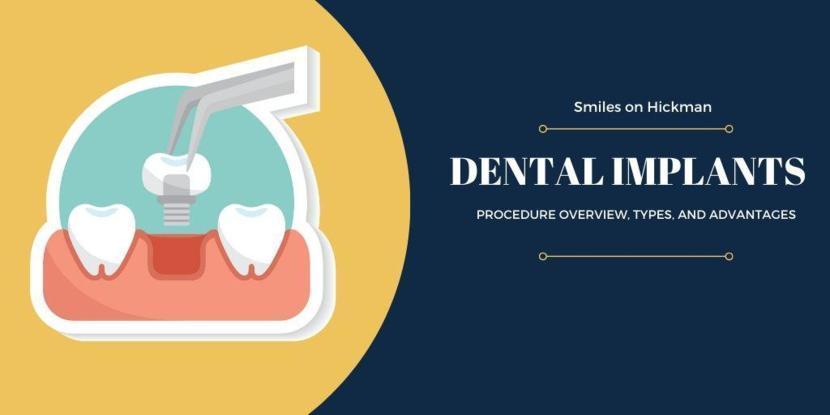Dental Implants: Procedure Overview, Types and Advantages

Dr. Stephen R. Thies has years of experience in providing sedation dentistry to help patients who experience dental anxiety. He believes everyone deserves a beautiful smile and provides a wide range of sedation options to help patients relieve the stress of dental procedures. Dr. Thies is committed to providing quality... more
Dental implants are an excellent treatment alternative for people suffering from tooth loss, which usually results from tooth decay, gum disease or any injury. Implants provide a strong base for fixed or removable artificial teeth that closely resemble your natural teeth. Different types of dental implants are available for you today. Your implant dentist can help you identify the best match for you. Read more to learn about the procedure, types and advantages of dental implants.
Types of Dental Implants
Traditionally, there are two main types of implants:
- Endosteal - These dental implants are set in the jawbone. Usually composed of titanium and designed like small screws, this type of implant is frequently used in implant treatment.
- Subperiosteal - These dental implants are positioned beneath the gum onto the jawbone. They are usually recommended for patients who cannot undergo a bone augmentation method to rebuild it.
Depending on your jawbone condition and needs, your implant dentist may recommend alternative procedures to traditional dental implants. Options may include:
- Immediate Load Dental Implants - Also known as same-day implants or teeth in a day implants, they allow you to get a temporary tooth placement on the same day of your dental implant appointment. This is a suitable option for people who have enough natural bone, and their implant is secure enough to bear the immediate placement and pressure of the new temporary tooth.
- Mini dental implants (MDIs) - These toothpick-sized implants are known as small or narrow diameter implants since they are slimmer than many frequently used dental implants. Also, they are set using less-invasive techniques and are mainly used to stabilize a lower denture.
- All-on-4 Implants - This is an alternative to placing a complete set of replacement teeth, referred to as a full arch. In this technique, four dental implants are attached to the available bone using special abutments. This allows fixing a temporary set of replacement teeth the same day without performing bone grafting.
Procedure Overview
The first step of the dental implant treatment involves the creation of a personalized treatment plan that is best for your condition. The plan addresses your individual needs and is formulated by professionals who are highly trained and experienced in oral surgery and restorative dentistry.
The next step consists of the tooth root implant, in which a small titanium post is connected to the bone socket of the missing tooth. Once the jawbone heals, it spreads around the implanted metal post, holding it securely in the jaw. The healing period can vary from six to twelve weeks.
After the implant has fused with the jawbone, a compact connector post or abutment is fixed to the post to retain the new tooth securely. Your dentist will create a model of your bite using your teeth impressions to make an artificial tooth or teeth that closely resemble your natural teeth. A crown is then secured to the abutment as your replacement tooth. Some patients may choose to get a removable denture that is supported and retained by implants.
Since the implant is fixed within the jawbone, the replacement teeth appear, feel, and function exactly like your natural teeth.
Advantages of Dental Implants
There are multiple advantages of dental implants, including:
- Appearance - As dental implants are intended to merge with your teeth bone, they become permanent. Moreover, they look and work like your own teeth.
- Speech - Unlike the ill-fitting dentures that slip and hamper your speech, you don’t have to worry about speech issues with dental implants.
- Comfort - Since they blend with your mouth structure, they become part of you and reduce the discomfort associated with other treatment options.
- Eating - Dental implants don’t cause chewing discomforts as they work like your natural teeth. You can confidently eat your favorite foods without any problems.
- Self-esteem - Dental implants restore your smile and boost your self-confidence.
- Oral health - With dental implants, your natural teeth structure is mostly left intact. Also, individual implants make it easier to clean between teeth, improving both oral hygiene and health.
- Life - Dental implants are highly durable, and with proper care, they can even last a lifetime.
- Maintenance - Dental implants only require regular cleaning, just like your natural teeth. They also eliminate the trouble of removing dentures and the need for messy adhesives to keep them in place.
Consult your dentist to see if dental implants are right for you.







